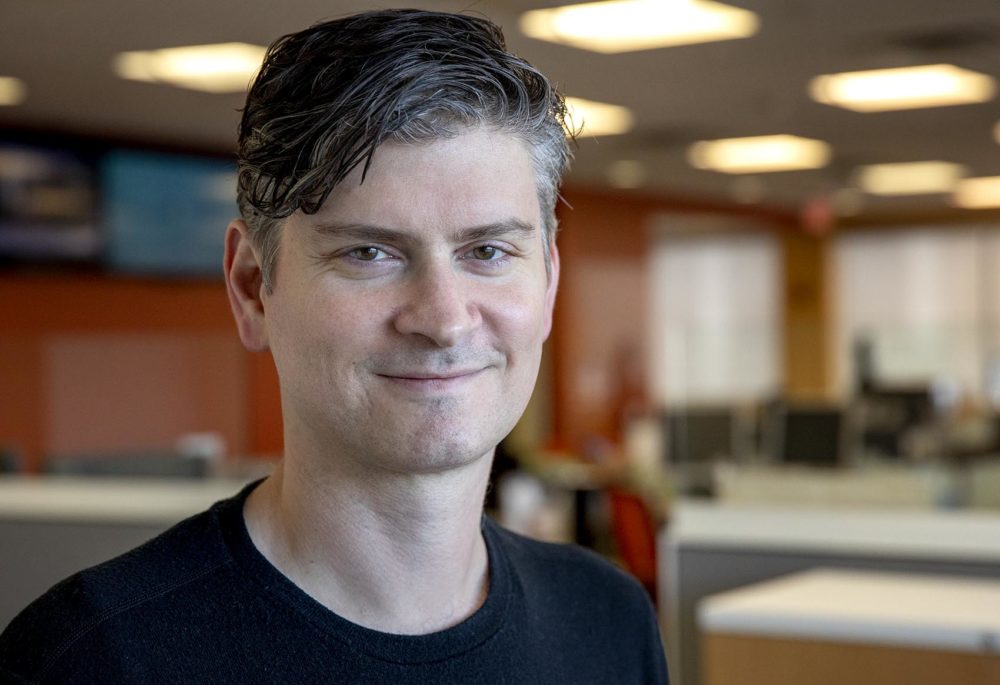Advertisement
'The Good Place' Creator Michael Schur On The Show's Final Season

Michael Schur has had a hand in creating some of TV's most iconic comedies. He was a writer and producer for "The Office," he co-created "Parks and Recreation" and "Brooklyn Nine-Nine," and he created "The Good Place."
The final season of "The Good Place" premieres Sept. 26 on NBC.
Guest
Michael Schur, television producer and writer. He tweets @KenTremendous.
Interview Highlights
On the genesis for "The Good Place," the comedy show he created about ethics
"When I drive around Los Angeles — which is a terrible way to spend your time — if people would sort of cut me off or do something obnoxious, which happens 12 to 15 times an hour, my way of avoiding road rage was to just say: 'That guy just lost 10 points.' I was sort of imagining a sort of ethical video game that we're all playing. I would just assign people points if they did nice things and I would take them away if they did bad ones.
"Then there were other moments in my life, different little events, where I found myself immersed in some kind of weird moral dilemma. It became a passion accidentally — studying ethics. It became a way for me to untangle odd moments in my life that I really enjoyed and I loved talking to people about it."
On whether he knew if ethics would be a good source of comedy
"I didn't know it. I suspected it. The reason I suspected is that when you read philosophy, which I have done a lot of in the last five years, sometimes you get to something like the trolley problem, where a philosopher will try to illustrate his or her [case] by creating a sort of thought experiment. The trolley problem famously is that. When you just listen to, 'If you're on a trolley, the brakes fail, you're going to kill five people: do you pull a lever and go to the other side?' That, to me, is hilarious. I mean, what a terrible thing to make you decide."
"Then if you read about the trolley problem, it keeps going. There's all these iterations. 'If you were a doctor and there are five patients who each need an organ, would you kill [an] innocent janitor in the hospital, who's just minding his own business, sweeping up and harvest his organs?' It's like, 'What is going on in this town?' All of these dilemmas are occurring."
On the central message of the final season of 'The Good Place'
"The show has taken the position that what's important isn't 'Are you a good person?' — that's the wrong question. The question is, 'Are you trying to be good?' Are you thinking about what you're doing, why you're doing it? Whether you could be doing something better? I think that's where we're heading into our final season. We're ending the show after season four and that is kind of the endgame of the show. To say, 'What's important is that you're thinking about this stuff and that you're trying.'"
On how real he and 'Parks and Recreation' co-creator wanted the show to be
"Very real. Greg and I did a lot of research. We went to a bunch of different local governments, we talked to a lot of people. We talked to city planners, we talked to people who work in parks and rec departments. We went to town council meetings, public meetings, public forums — which are wonderful and hilarious."
"When you go to those meetings, it's sort of heartwarming because anyone can stand up and talk for two minutes. That's sort of a general rule of thumb at public forums. People stand up and they say crazy things. They have some axe to grind about something, and it's messy, and it takes a long time, and people kind of tune out. But it's also sort of beautiful. It's like a beautiful aspect of democracy that the people who represent us have to go in front of us from time to time, even if they ignore us completely. We get to say what's on our mind. Leslie Knope, played by Amy Poehler, was a character who deeply believed that that was valuable and important. That people get to stand up and say whatever and get to care about whatever they want and that she had to be responsive. It's a little bit of a fantasy."
Advertisement
On whether the sweet optimism of Park And Recreation would work in 2019
"I don't, frankly, think we would change anything. The show happened to be conceived of around the time of the financial crisis. Greg Daniels and I talked a lot about how, in one way or another, the government was gonna be playing a more active role in people's lives. So we were like, let's do a show about where the rubber meets the road — like local government, not abstract federal [Troubled Asset Relief Program] bailout government. Just, I need a stop sign on my corner kind of government."
"When we designed the character with Amy Poehler, that was the point of it. The point of it was just: 'Who are the people who have to be responsive on an individual level, at the local level?' I don't think anything would change [now]. I think the thoughts of the audience might be reflected back to us a little differently because it's not like, 'we're picking ourselves up by our bootstraps and trying to recover from this giant economic crisis,' but rather, 'we're in the midst of incredible turmoil and how do you find a path forward.' But [Knope] wouldn't change."
This article was originally published on September 17, 2019.
This segment aired on September 17, 2019.



